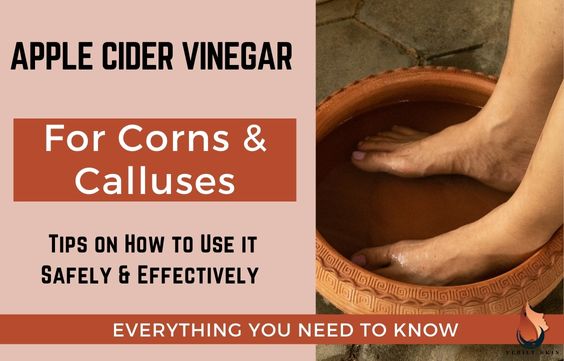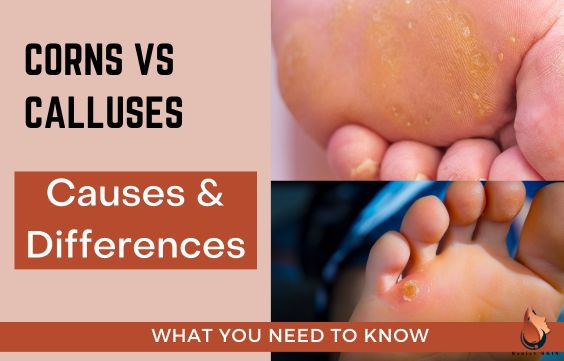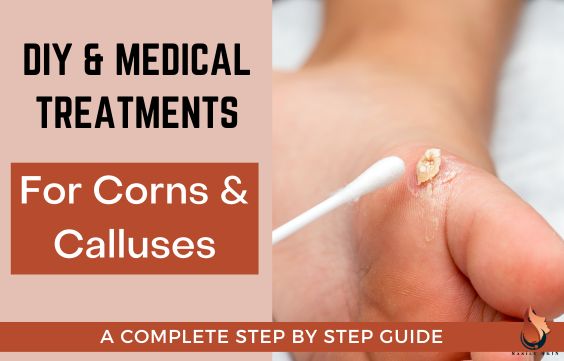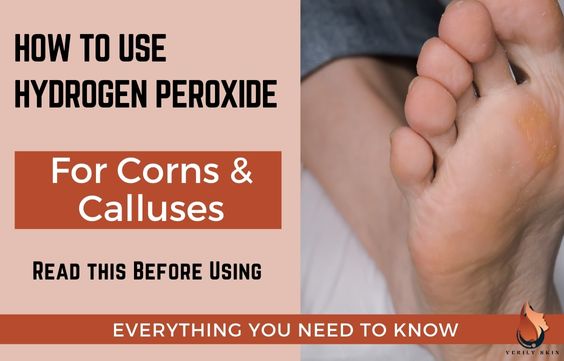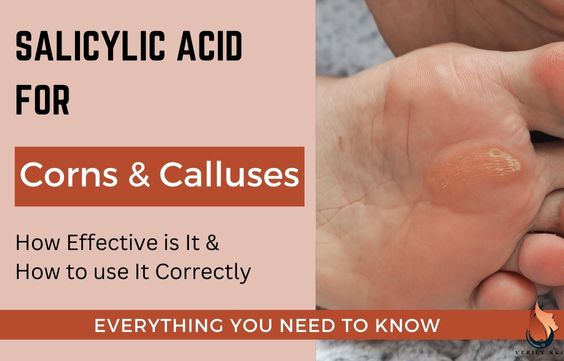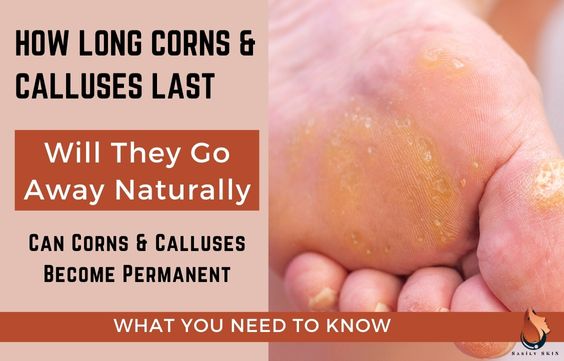Why Do Corns & Calluses Hurt & Easy Tips to Ease the Pain
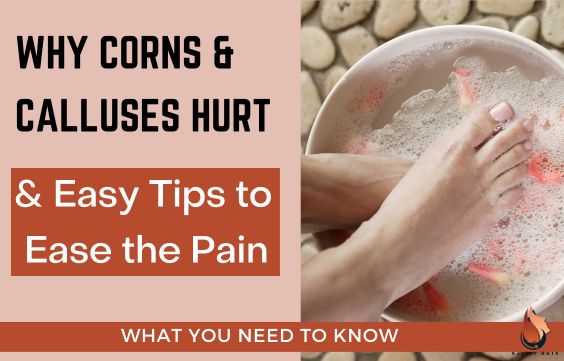
A dermatological problem more people face than we realize is having corns & calluses. Not only do they look displeasing, but corns & calluses can hurt too.
Why do corns & calluses become painful if they are just thickened patches of skin? And more importantly, what can we do to help and prevent the pain?
Do Corns & Calluses Hurt The Same Way
Both corns & calluses become more painful as they get worse. However, corns are generally more painful than calluses.
Most calluses form over pressure points and will only begin to hurt when they become thick enough to obstruct your natural movement (increased friction or affecting the way you put weight on your feet or hands).
Corns, on the other hand, start deeper in the skin from the beginning and only gets worse, increasing pain.
You can click here to learn more about the difference between corns and calluses.
Also, you need to read my article on Quick Remedies & Medical Treatments for Corns & Calluses
What Makes Corns & Calluses Hurt
Corns are painful because even though they thicken outward, they also develop internally, forming a “core” while affecting deeper layers of the skin, closer to your nerve endings. Because of the deepness, they are also associated with inflammation and irritation which both cause pain.
They are even more painful when situated over a bony structure in your feet or hands where pressure and friction are constantly applied. This just makes the whole area more irritated, inflamed, and painful.
Calluses on the other hand are usually more uncomfortable than painful, but they can become painful. They usually develop over pressure points and are thickened patches of skin that do not develop a “core” deep into the skin. But calluses can become painful if they get very thickened, cracked and irritated, or infected.
Related Article – Infected Corns & Calluses – How To Spot & Treat
How Can You Lessen Or Prevent Pain
The best way to lessen and prevent your corns & calluses from causing pain is to constantly keep them thin & protected and to tackle the underlying cause of the corn or callus.
How to do this:
- Regularly soak your feet to soften your corns and calluses. Making a foot soak is super easy. Just add some warm water to a tub and add other gentle but softening ingredients. I love soaking my feet in Epsom salt and warm water. It really helps to soothe and soften your skin.
- Regularly use a pumice stone to file away the extra-thickened skin.
- Moisturize your skin and the area of the corn or callus daily to keep it soft. This will prevent the skin from thickening too fast and getting hard.
- If your corn or callus is big and very hard, and home soaking and filing is not working well enough, see a doctor to get it physically debrided or treated medically.
- Change the shoes and hand gear that you wear to make sure they are suitable for you and are not causing your corns & calluses to get worse.
- Use corn and callus pads or cushions around the area to prevent pressure and friction.
- If you have a bony abnormality that is causing your corns to become worse, see your doctor and consider speaking to an orthopedic doctor to discuss what you need to do to fix it.
Depending on how bad your corn or callus is, you may need to do some of these things more often than typical.
Disclaimer
Keep in mind: OTC pain medication and pain rubs can be helpful but they are not long-term or sustainable solutions.
If the pain you are feeling is unbearable, you can safely use OTC painkillers and apply a pain rub to the area. However, when these medications wear off, the pain and the problem will still be there. Ask your doctor or pharmacist to recommend one that will be safe for your tender skin.
You can check out these articles to learn more about preventing corns and calluses. Also click through to see our recommendations for great corn/callus pads and cushions, and other gear to help you manage/prevent pain and recurring corns/calluses:
Tips on How to Prevent Calluses on Your Hands
7 Tips on How to Prevent Calluses & Corns on Your Feet
How To Stop Corns & Calluses From Hurting When You Walk
An easy way to lessen the pain when walking is to make sure they are softened and file down. Also, use corn or callus pads or cushions around the area.
When walking, corns & calluses become more painful when they are bigger and thicker. This also makes them exposed to more friction, pressure, and irritation.
If they do not help enough, try to avoid putting too much weight on the area when walking, and make sure to wear shoes that are right for your feet (avoid too tight or too slack shoes, or shoes that will rub over the area).
Related Articles:
Best Essential Oils & Body Oils to Treat Corns & Calluses
Salicylic Acid for Calluses & Corns: What You Need to Know
Will painful corns & calluses go away on their own?
A corn or callus that is painful will not go away on its own. Depending on your daily activities, they will likely become worse.
Calluses can become less painful or bothersome if they are mild-moderately thickened and if you adjust the way your use the area (wear better shoes or hand gear, restrict activity involving that area, prevent weight bearing and friction, etc). The callus will not go away but it will get less painful and will slow down its progression to becoming worse.
Corns, on the other hand, become progressively worse. Doing all the above like with a callus may it down (so it will get worse but just more slowly), but it will still hurt, especially when pressured, and it will continue to become worse.
Click here to read more about How Long Calluses & Corns Last & Do They Go Away Naturally
Related Articles:
Hydrogen Peroxide for Corns & Calluses: How to Safely Use
Apple Cider Vinegar For Corns & Calluses – What To Know
Sources
1-Corns and calluses Information | Mount Sinai – New York
2-Corns (Clavus) Clinical Presentation: History, Physical Examination, Complications

